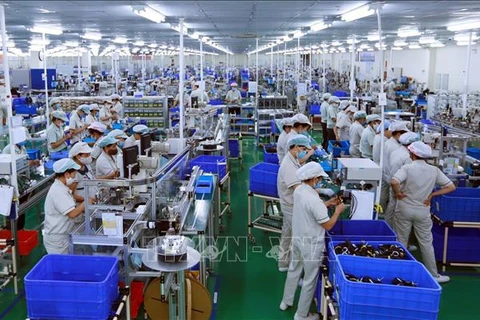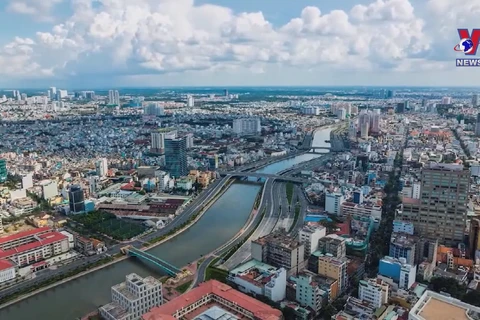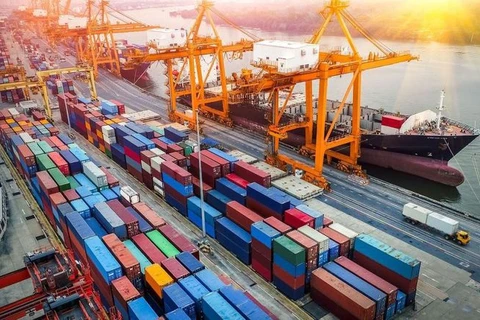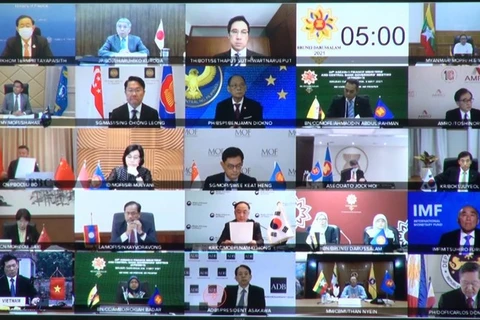Hanoi (VNA) - According to World Bank experts, if it is necessary to maintain or tighten new restrictions on health and travel, Vietnam may consider a new fiscal stimulus package, including large-scale measures.
The World Bank’s latest report indicates that Vietnam’s economic recovery may be negatively affected by the fourth wave of COVID-19.
According to its experts, the Vietnamese Government has responded quickly and applied measures to limit travel in the community.
They also recommended that: “If it is necessary to maintain or tighten new restrictions on health and travel, the government may consider a new fiscal stimulus package, including greater support for people and businesses affected by the COVID-19 pandemic.”
Stabilising the policy environment is a must
Previously, in a continuing effort to support businesses facing difficulties due to COVID-19, the government issued Decree No 52/2021/ND-CP on extending deadlines for paying several types of taxes, including value added tax, corporate income tax, and personal income tax, as well as land rentals, among others, in 2021. This is the third time the government has extended the timeframe on tax and land rental payments to support businesses facing difficulties from the pandemic.
In general, the business community believes that similar support from the government would play a very important role in helping them recover quickly in the time to come.
According to the Ministry of Finance, the total amount of payments expected to be delayed will be up to 115,000 billion VND. However, businesses have said that as this is an extension to tax payment timeframes, budget revenue in 2021 will not be affected, because payments will be made by the end of the year.
Economist Tran Dinh Thien emphasised that in addition to the business stimulus packages introduced by the government, stabilising the policy environment at this time is a necessary requirement to help businesses prepare plans to make it through this difficult period. “It is important not to raise taxes or introduce new taxes, to ease the burden on businesses,” he said.
For FDI enterprises, Thomas McClelland, Chairman of the Tax and Transfer Pricing Sector Committee of the European Business Association in Vietnam, said that tax policies to support businesses affected by COVID-19 have been very positive. He suggested that the government maintain supportive policies at least until the end of 2021.
“The impact of the COVID-19 pandemic on Vietnamese businesses” report published recently by the Vietnam Chamber of Commerce and Industry (VCCI) pointed out that some economic sectors have been particularly hit hard. Among domestic enterprises, 97 percent of garment enterprises are struggling, as are 96 percent of information and communications enterprises and 94 percent of electrical equipment manufacturing enterprises. Among FDI enterprises, industries experiencing major negative impacts include real estate (100 percent of enterprises), information and communications (97 percent), and agriculture / aquaculture (95 percent).
The report said that COVID-19 has had a negative impact on businesses in many different ways.
Prioritising disease prevention
From the outset of the fourth outbreak, authorities in Vietnam immediately strengthened measures to limit travel and care for public health. Testing, tracing, and isolation measures have been strictly implemented. The authorities have called on people to actively join hand in the fight and the call has been welcomed by almost people.
World Bank experts, however, believe that domestic economic activities will be affected, especially in the tourism, transport, and retail sectors. This will depend on the severity of the outbreak and how quickly the government responds.
Experts also said that if this outbreak has a major impact, the government may need to consider boosting domestic demand by adopting a more accommodative fiscal policy, including measures to increase support for businesses and people affected by the pandemic./.

























